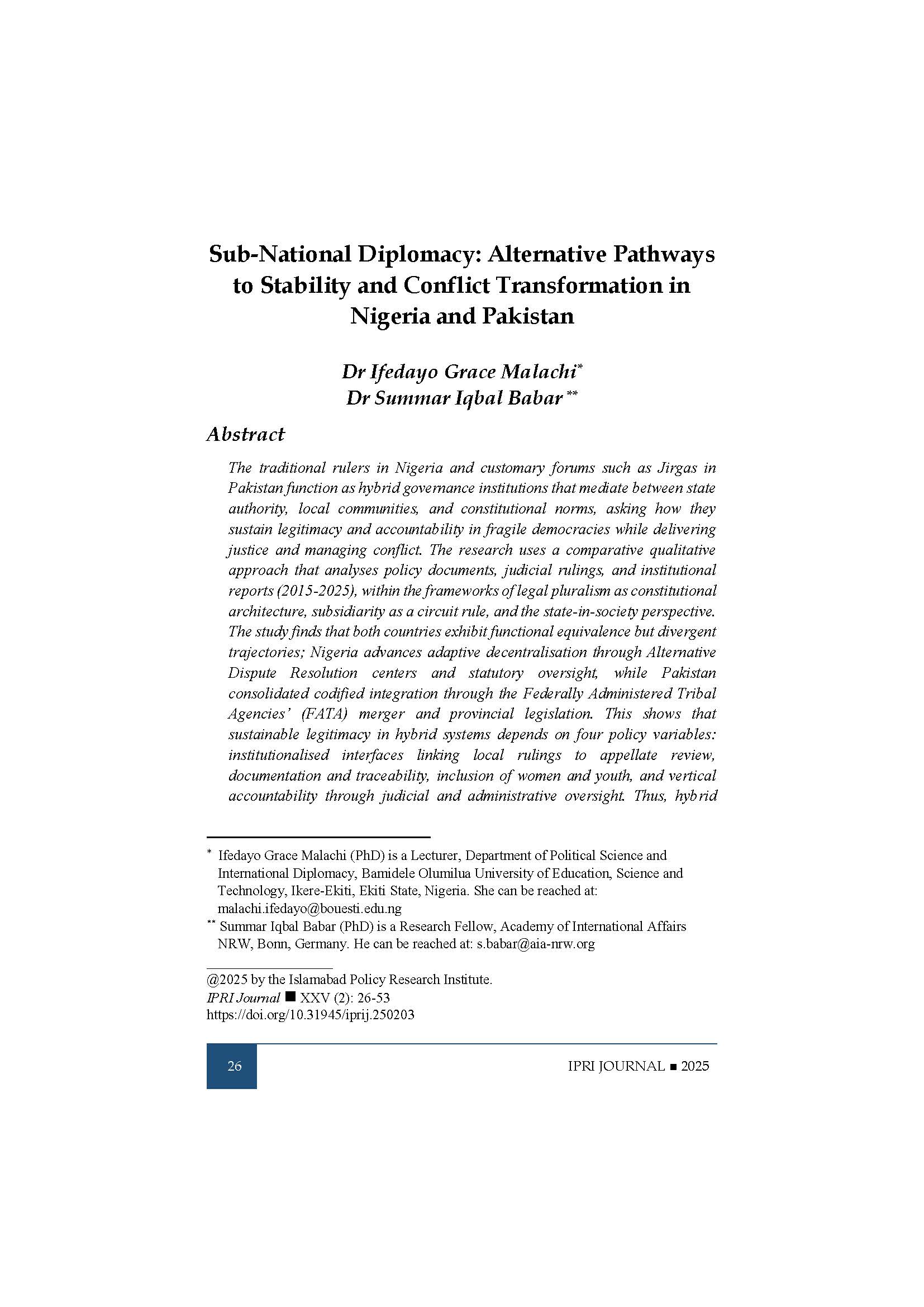Sub-National Diplomacy: Alternative Pathways to Stability and Conflict Transformation in Nigeria and Pakistan
The traditional rulers in Nigeria and customary forums such as Jirgas in Pakistan function as hybrid governance institutions that mediate between state authority, local communities, and constitutional norms, asking how they sustain legitimacy and accountability in fragile democracies while delivering justice and managing conflict. The research uses a comparative qualitative approach that analyses policy documents, …
